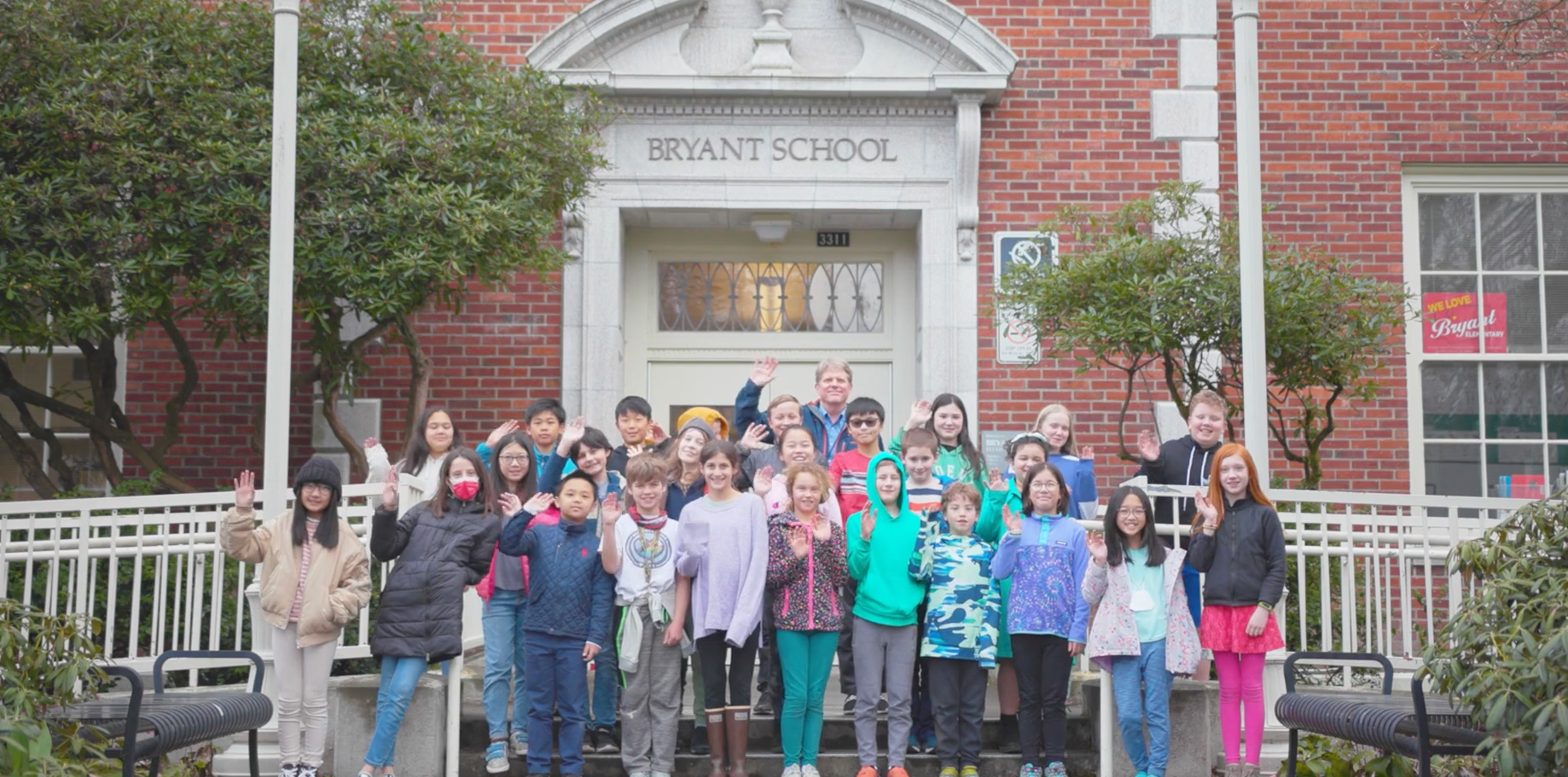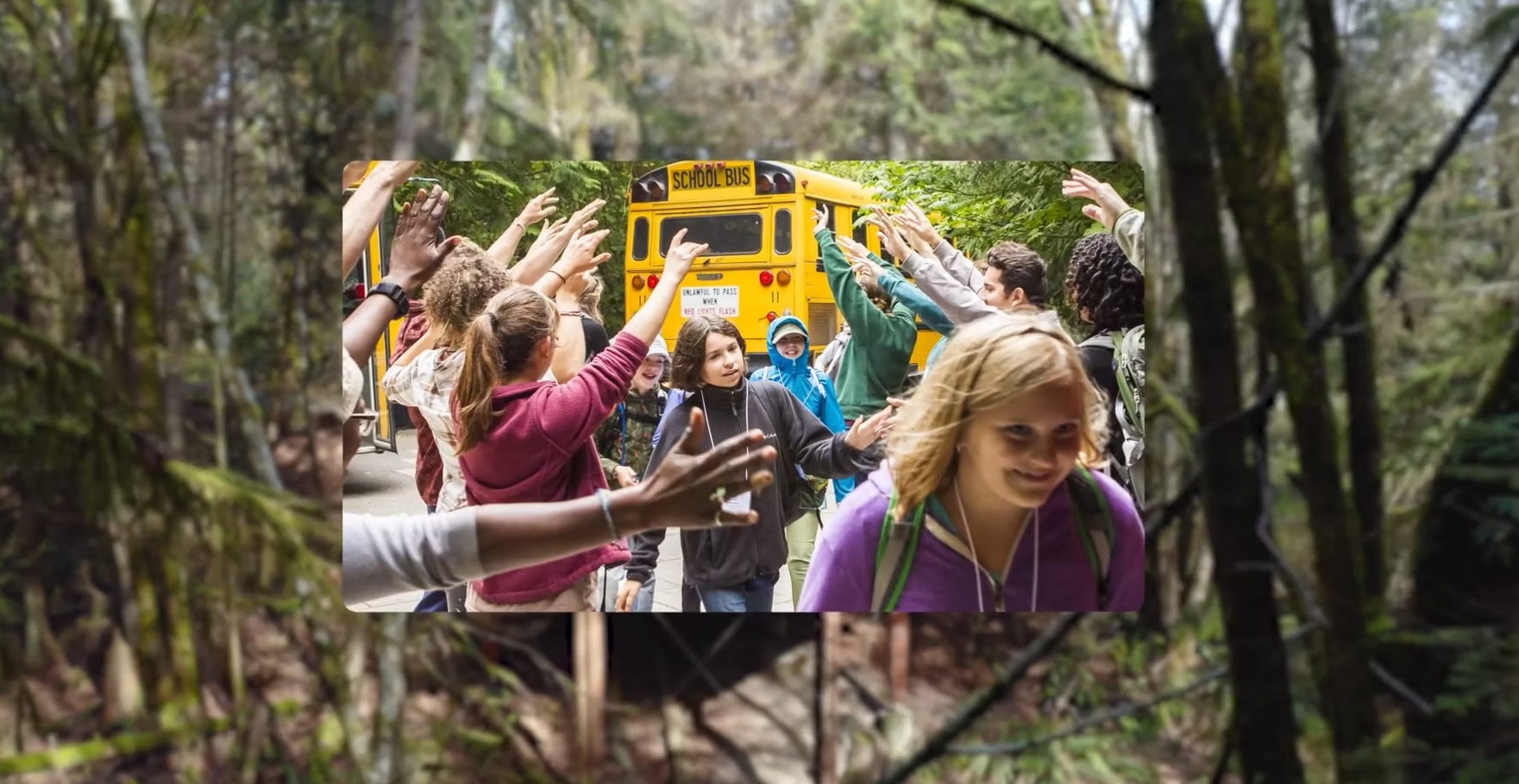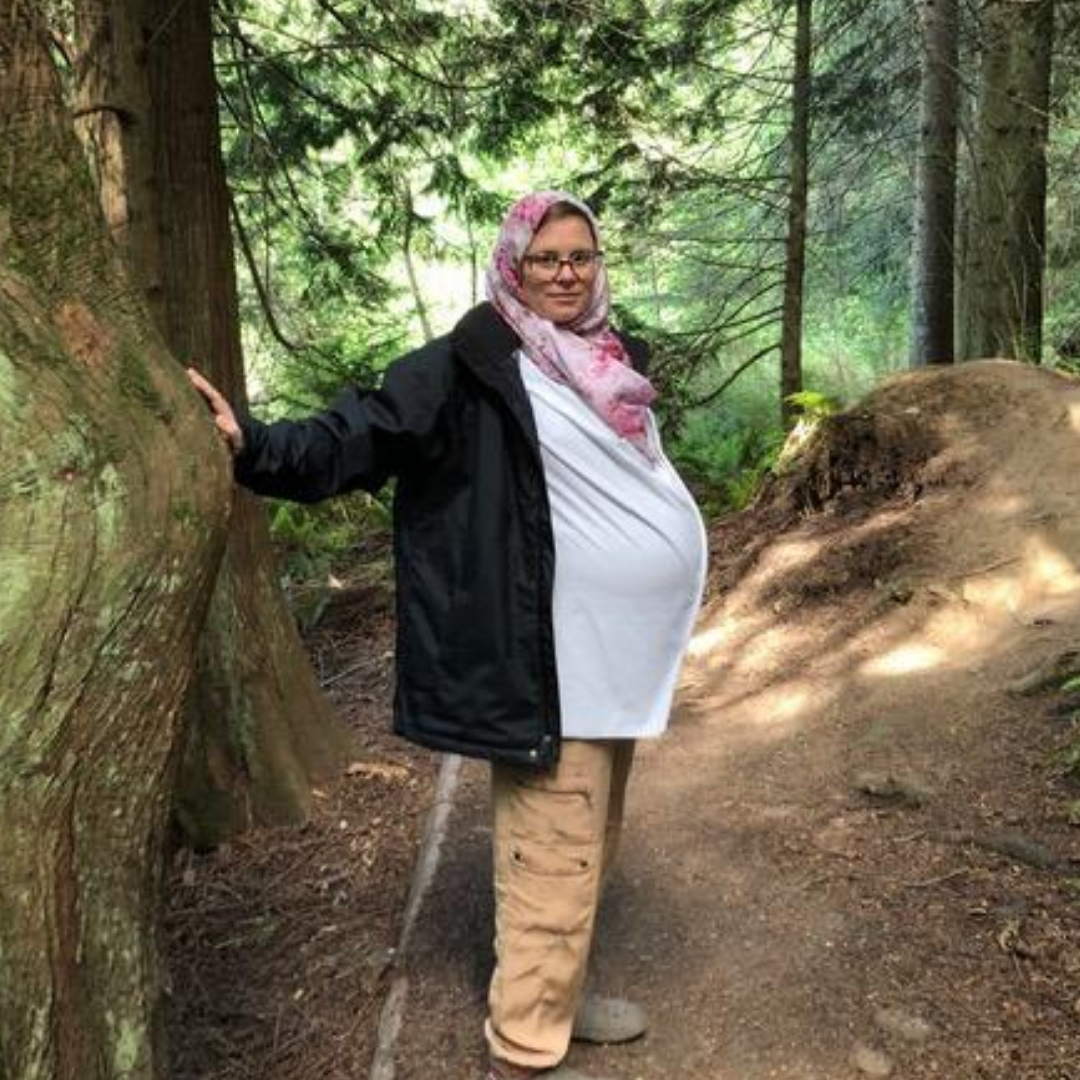Bryant Elementary was one of the schools included in our pilot program of the School…
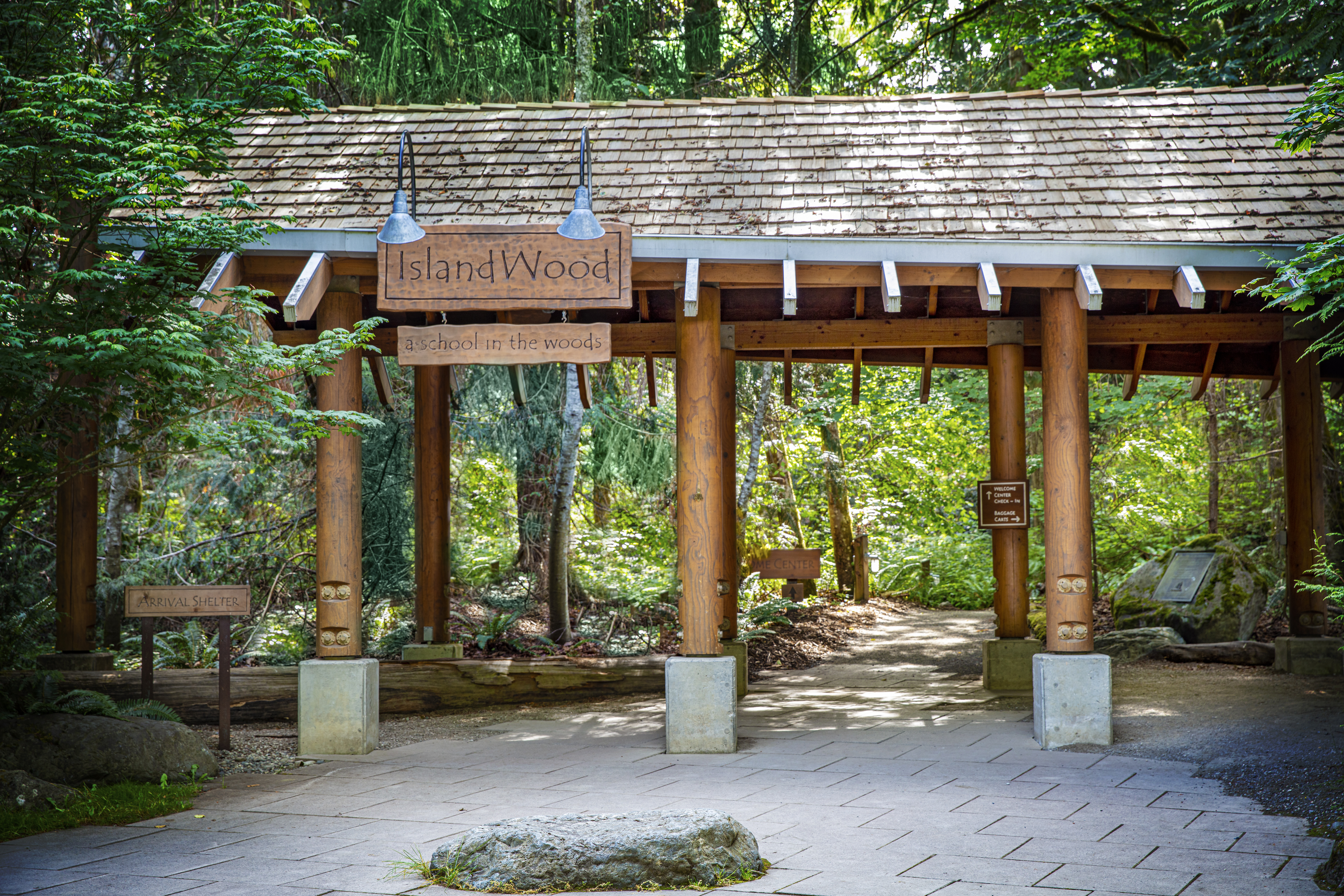
IslandWood’s Arrival Shelter has welcomed thousands of students to IslandWood’s Bainbridge Island campus since 2002.
Celebrating our 20th Anniversary, Featuring Debbi Brainerd
This month we celebrate twenty years—since launching our School Overnight Program and Graduate Program on Bainbridge Island. Over the course of this 20th year, we will feature people, partners, and organizations that have played a significant role in our history. The person we start with is our founder—Debbi Brainerd.
As a young child, Debbi spent her summers in nature at her family’s one-room log cabin on Whidbey Island. “We went there as often as we could,” says Brainerd. “Both my parents worked, but on weekends, we packed up the car on Friday and headed to the Mukilteo ferry. We all loved digging butter clams, putting out the crab trap, and I especially enjoyed the local deer—who sometimes would step out of the forest, walk up to you, and take an apple from your hand.”
Many years later, in 1997, she learned about a large parcel of forest on Bainbridge Island that was soon to be divided into 20-acre parcels for residential development. Debbi and her husband Paul, residents of downtown Seattle heard about the land and were curious. “We walked up one of the old overgrown logging roads—only to see a five-point buck staring down at us from above.”
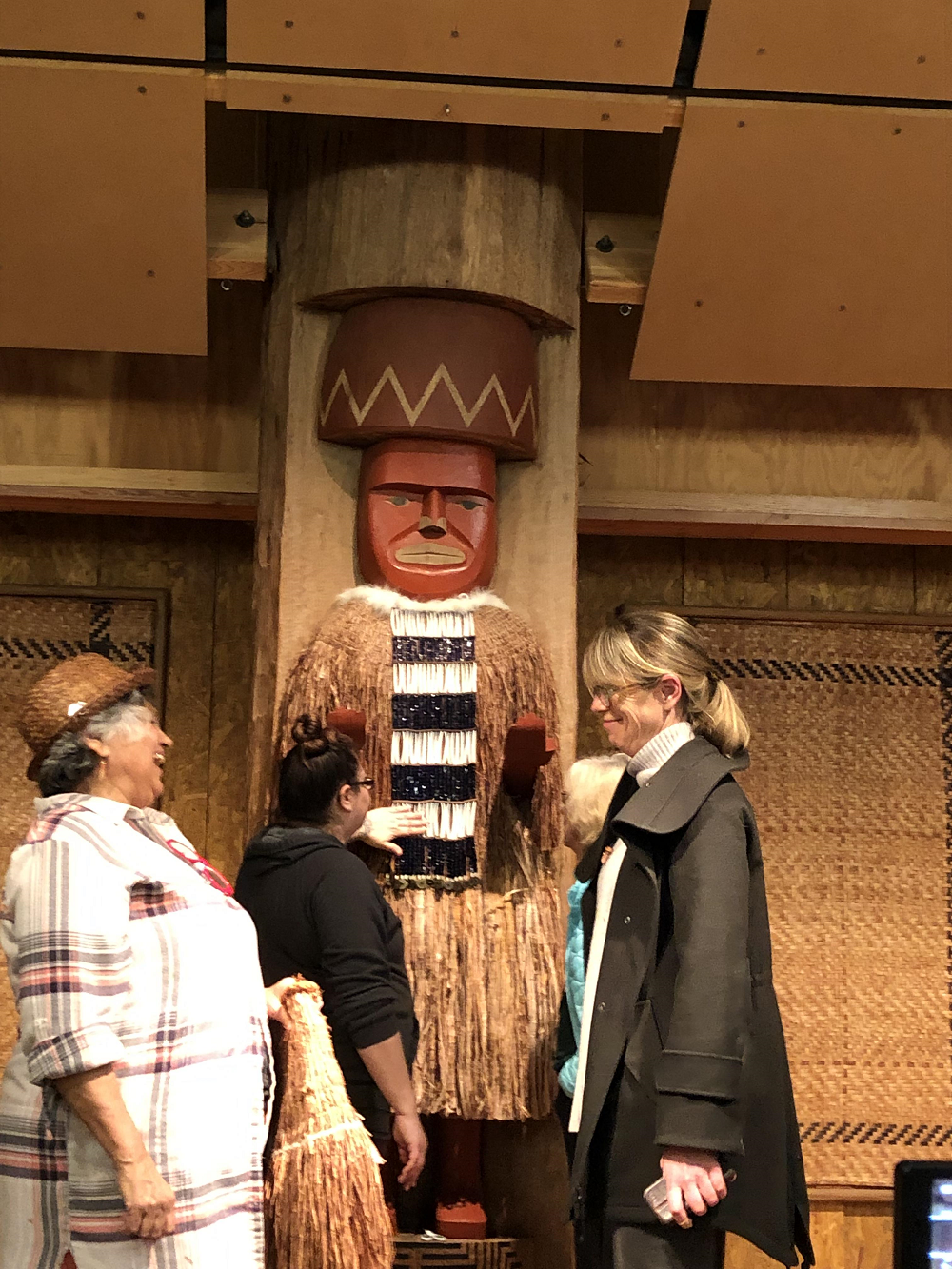
Peg Deam and Debbi Brainerd talking in front of Grandmother Vi, a revered tribal elder, in the Great Hall.
It was a few weeks later that Debbi had an idea. She wondered if part of the land slated for development could be preserved and they could build a school in the woods where children could learn about the beauty and magic of the natural world.
Debbi took 6 months to research the feasibility of her idea for a school in the woods to support environmental and science education for kids. She learned about Tony Angell, who was then the Director of Environmental Education for Washington State. Tony explained that for the most part, only kids from the wealthier schools and communities were getting these experiences. The environmental learning centers that existed didn’t serve kids from low-income communities. She also learned that environmental education was a state mandate in Washington, but funding had never been allocated with that mandate. It was then that the Brainerds realized that they needed to purchase 255 acres and created a non-profit organization—to begin to close this education gap.
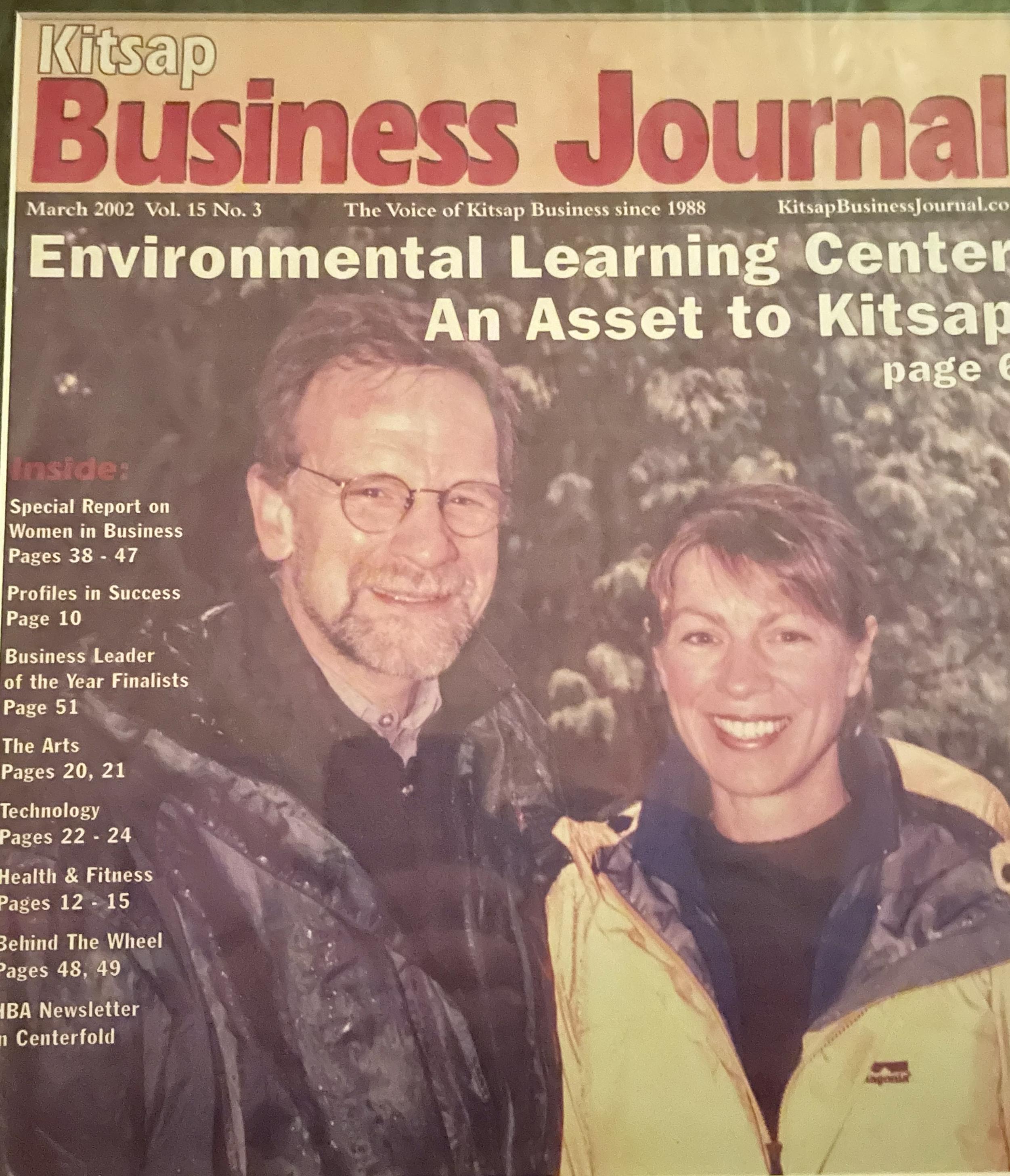
Debbi & Paul Brainerd, founders of IslandWood, on the cover of Kitsap Business Journal in March of 2002.
Only a few months later, in 1998, the Pew Charitable Trust released a study called “Closing the Achievement Gap – Using the Environment as an Integrating Context for Learning.” The study showed that student-centered, project-based learning outdoors resulted in:
- Better performance on standardized tests because it engages different learning styles
- Reduced discipline issues and increased attendance at class because it was fun
- Created more social interaction for increasing interpersonal skills and team building
The findings excited everyone on the project team. Debbi saw that project-based learning allowed curriculum to come to life and allowed children to participate in different ways. She had always struggled with dyslexia and some ADD and knew hands-on learning would create a more inclusive and successful learning experience for more children.
One of IslandWood’s core values is inclusivity, and this began, at the beginning, with Debbi. Everything about the process of creating a place like IslandWood was steeped in intentionality. Debbi toured over 12 different outdoor residential schools across the country, working to integrate the best ideas into IslandWood’s campus. She and her team organized local focus groups with historians, artists, teachers, and children to talk about different ways they could look at experiential learning. Over several months, 250 elementary children also participated in the process, coming up with ideas like the floating classroom on the pond and the small window over every bunk bed in the lodges—so kids could look out and see the forest.
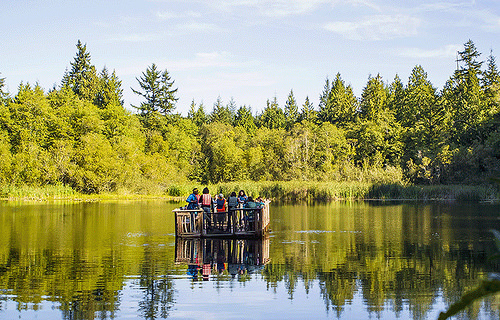
IslandWood’s Floating Classroom on Mac’s Pond, an idea came from elementary school children.
Debbi and her husband Paul hired sustainably minded Seattle-based architects Mithun, and landscape design firm, Berger Partnership. As part of their design process, Mithun and Berger camped on the site, to see the property’s different landscapes through the eyes of children. They wanted to design structures that would feel connected to the land and also integrate salvaged and recycled materials. Local planner Bill Isley helped develop a master plan that located buildings with minimal impact on the most sensitive areas of the property. The idea was to ensure any old growth and native plantings were saved, while also wishing to build Washington State’s first on-site wastewater treatment plant, The Living Machine, which used reclaimed water for low-flush toilets and landscape irrigation. When completed, IslandWood was the first in the state of Washington to become Gold LEED (Leadership in Environmental Energy Design) certified.
In the spring of 2002, the first school pilot program ran, serving 700 children. In the fall of 2002, IslandWood officially opened its doors to the public with the School Overnight Program and the Graduate Program, serving 2,390 elementary and middle school students and six graduate students.
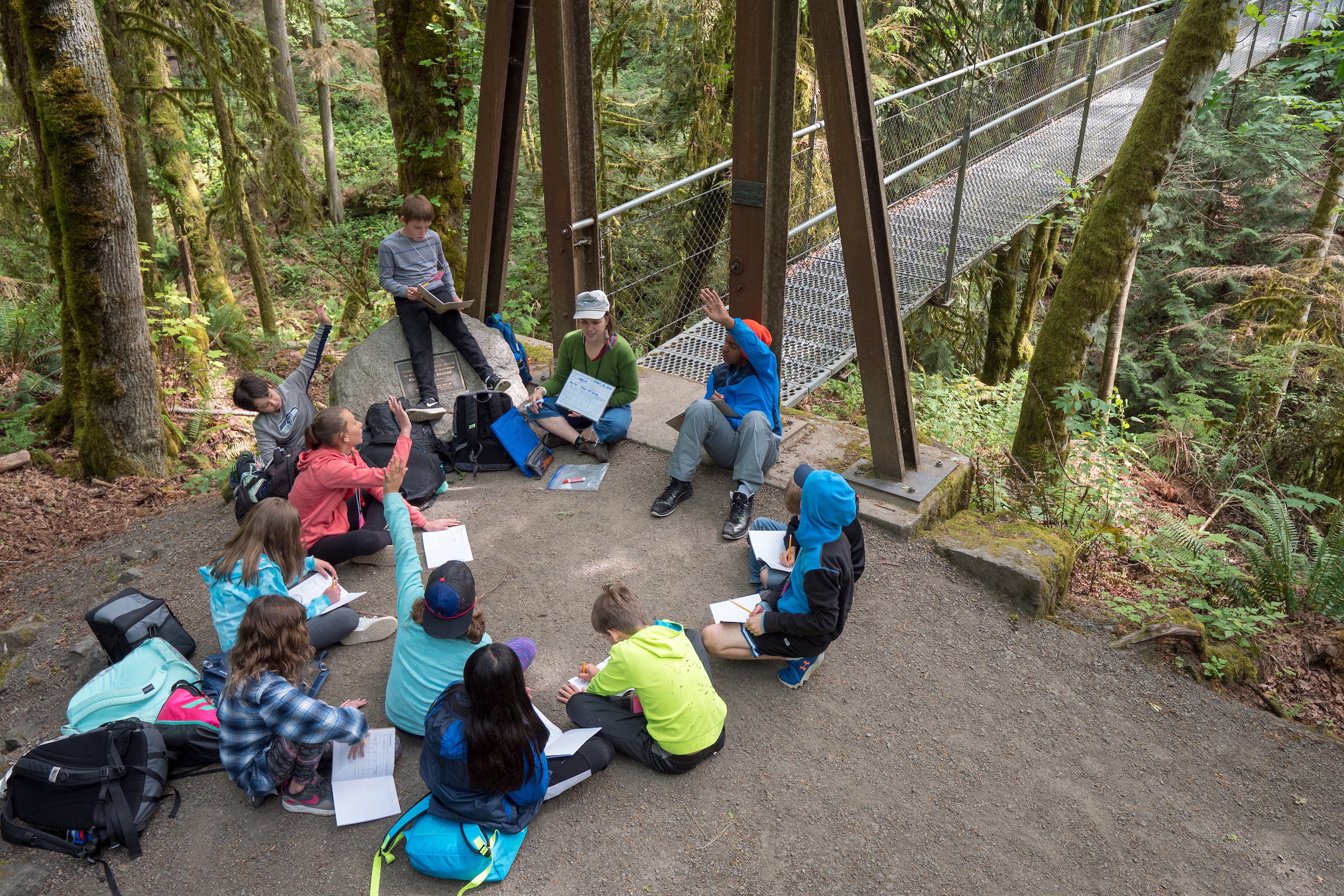
An IslandWood graduate student sits in a circle with students in the School Overnight Program leading a lesson near the Suspension Bridge on IslandWood’s Bainbridge Island campus.
In the two decades that have followed since opening its doors, IslandWood has grown to be a national leader in the field of environmental education. It has expanded its work to include day programs in Seattle, Woodinville, and Renton; teacher professional development courses funded by Washington State’s ClimeTime (Climate Science Learning) initiative; co-development of a 4th-grade science unit, Community Waters; community education programs and summer camps on both Bainbridge Island and in Woodinville; and advocacy efforts on behalf of all Washington State students and teachers. From Debbi’s original vision of on-site programs, IslandWood has now expanded to 50 school districts, 200 schools, and 30,000 students, educators, and community members each year.
“In the beginning, I never imagined IslandWood would offer so much, or become so integrated into the fabric of our region,” says Debbi. “Twenty years later, the reach and impact is extraordinary. To hear the stories of children who remember their experience with IslandWood years and years later—of educators who now teach in new ways and with new tools – or of community members who continue to learn and bring their families to experience IslandWood programs. My vision has been more than fulfilled—it’s unbelievable how it continues to find ways to serve more children and teachers every year.”
At its inception, Debbi wanted to create IslandWood to serve kids at the lowest possible cost to ensure all kids could participate in outdoor learning adventures. Now, thanks to many, many generous supporters, foundations, and government grants—IslandWood continues to provide accessibility and scholarships to children, graduate students, educators, and community members. “A big thanks to all our supporters. Paul and I started out with buying the land as a gift to create the school, then we fundraised $30 million dollars from the Puget Sound region to build the buildings. Now we have this amazing school in the woods that we hope will continue to inspire children and teachers for generations to come.” says Debbi.
Happy 20th anniversary to Debbi Brainerd, IslandWood’s founder!
If you haven’t already, subscribe to our newsletter to stay in the know about IslandWood news and updates, stories from our programs, and more.

